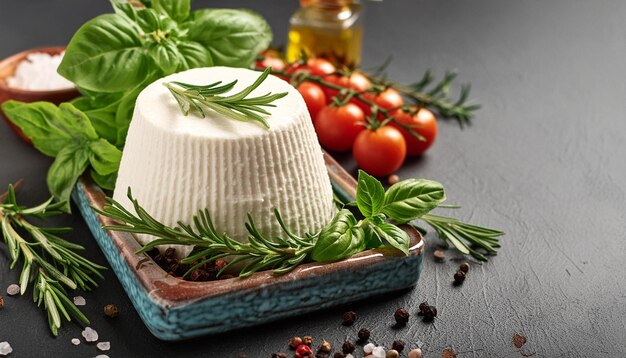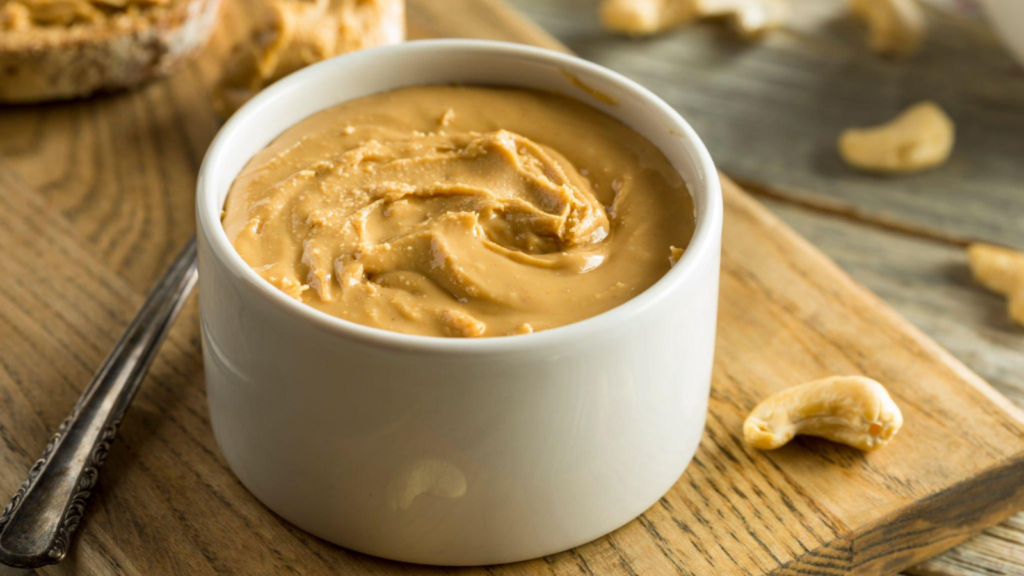Ricotta cheese has become a staple in many kitchens, beloved for its creamy texture and versatility. But is ricotta cheese healthy? This article will explore its nutritional profile, health benefits, potential downsides, and practical ways to incorporate it into your diet.
Nutritional Profile of Ricotta Cheese
Before diving into health benefits, let’s take a closer look at what ricotta cheese offers nutritionally.
Basic Nutritional Information
Here’s a quick overview of ricotta cheese per 100 grams:
| Nutrient | Amount |
|---|---|
| Calories | 174 kcal |
| Protein | 11.1 g |
| Fat | 10.3 g |
| Carbohydrates | 3.4 g |
| Calcium | 207 mg |
| Vitamin A | 500 IU |
Key Nutrients Explained
- Protein: Ricotta is a good source of protein, essential for muscle repair and growth.
- Calcium: Important for bone health, ricotta provides a significant amount of calcium.
- Vitamins: It contains Vitamin A, which supports vision and immune function.
Health Benefits of Ricotta Cheese
- Excellent Source of Protein: Ricotta cheese is rich in protein, making it an excellent choice for those looking to increase their protein intake without excessive calories. This is particularly beneficial for athletes or anyone engaged in regular physical activity.
- Supports Bone Health: With its high calcium content, ricotta cheese plays a vital role in maintaining strong bones. Calcium is crucial for preventing osteoporosis and other bone-related issues.
- Low in Carbohydrates: For those following low-carb diets, ricotta cheese is an appealing option. Its low carbohydrate content makes it suitable for keto and other similar diets.
- Contains Healthy Fats: While ricotta does contain fat, much of it is unsaturated fat, which can be beneficial when consumed in moderation. These fats are essential for hormone production and overall cell health.
- Versatile Culinary Uses: Ricotta cheese can be used in various dishes—from savory to sweet—making it easy to incorporate into your diet. You can add it to pasta dishes, use it as a spread, or even include it in desserts like cheesecake.
Potential Downsides of Ricotta Cheese
While there are many benefits to consuming ricotta cheese, it’s essential to consider some potential downsides.
- High in Sodium: Some varieties of ricotta can be high in sodium, which may not be suitable for individuals with hypertension or those watching their salt intake.
- Lactose Intolerance: Ricotta cheese contains lactose, which can cause digestive issues for those who are lactose intolerant. However, many find that they can tolerate ricotta better than other cheeses due to its lower lactose content.
- Caloric Density: Though ricotta is nutrient-dense, it is also calorie-dense. Overconsumption can lead to weight gain if not balanced with physical activity.
How to Incorporate Ricotta Cheese into Your Diet
Incorporating ricotta cheese into your meals can be simple and delicious! Here are some ideas:
Breakfast Ideas
- Ricotta Toast: Spread ricotta on whole-grain toast and top with fresh fruit or honey.
- Smoothies: Blend ricotta into smoothies for added creaminess and protein.
Lunch Options
- Salads: Add dollops of ricotta to salads for extra flavor and nutrition.
- Pasta Dishes: Use ricotta as a filling for stuffed pasta like ravioli or lasagna.
Dinner Recipes
- Casseroles: Mix ricotta with vegetables and bake for a hearty dish.
- Pizza Topping: Use it as a topping on homemade pizzas for a creamy texture.
Snack Ideas
- Fruit Dip: Mix ricotta with honey and cinnamon for a tasty fruit dip.
- Stuffed Peppers: Fill bell peppers with a mixture of ricotta, herbs, and spices before baking.
Real-Life Examples
To illustrate the health benefits of ricotta cheese, let’s look at two individuals:
Sarah the Athlete:
Sarah is an avid runner who needs ample protein for muscle recovery. She incorporates ricotta into her post-workout meals by mixing it with berries and nuts. This not only helps her meet her protein needs but also offers healthy fats and antioxidants from the berries.
John with Lactose Intolerance
John has lactose intolerance but finds that he can enjoy small amounts of ricotta without discomfort. He uses it in his favorite lasagna recipe, allowing him to enjoy this classic dish without the side effects he experiences from other dairy products.
Is Ricotta Cheese Healthy for Weight Loss
Ricotta cheese can be a beneficial addition to a weight loss diet. It is high in protein, which promotes satiety and helps control hunger, making it easier to manage calorie intake. Low-fat versions are available, reducing overall fat and calorie consumption while still providing essential nutrients like calcium and B vitamins. Additionally, its creamy texture enhances meals without excessive calories, making ricotta a versatile ingredient for healthy recipes. Overall, when consumed in moderation, ricotta cheese can support weight loss efforts effectively.
Is Ricotta Cheese Healthy for Cholesterol
Ricotta cheese can impact cholesterol levels due to its fat content. While it contains about 126 mg of cholesterol per cup, the saturated fat in whole milk ricotta may raise LDL cholesterol levels, increasing heart disease risk. However, opting for part-skim or fat-free varieties can help reduce both fat and cholesterol intake. Moderation is key; consult a healthcare professional if you have high cholesterol to determine how ricotta fits into your diet. Overall, it can be enjoyed as part of a balanced approach to heart health.
Is Ricotta Cheese Healthy for Diabetics
Ricotta cheese can be a suitable option for diabetics when consumed in moderation. It is low in carbohydrates, which helps prevent significant blood sugar spikes. Additionally, its high protein content promotes satiety, aiding in weight management. However, individuals should opt for lower-fat and lower-sodium varieties to minimize saturated fat and salt intake. Pairing ricotta with high-fiber foods can further stabilize blood sugar levels. Overall, ricotta can be a healthy addition to a balanced diet for those managing diabetes.
Conclusion: Is Ricotta Cheese Healthy?
So, is ricotta cheese healthy? The answer is nuanced but generally positive!
- Nutritional Benefits: It’s rich in protein, calcium, and vitamins while being low in carbohydrates.
- Culinary Versatility: Its adaptability makes it easy to include in various meals.
- Potential Drawbacks: Be mindful of sodium levels and caloric density if you’re watching your intake.
In moderation, ricotta cheese can be part of a balanced diet that supports overall health. Whether you’re looking to enhance your meals or boost your nutrition, this creamy delight has much to offer!
By understanding both the benefits and potential downsides of ricotta cheese, you can make informed choices about including it in your diet. Enjoy experimenting with this versatile ingredient!


